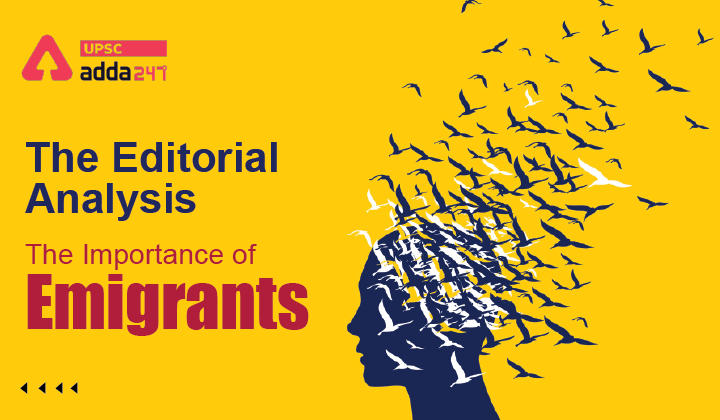Table of Contents
Migration in India UPSC: Relevance
- Welfare schemes for vulnerable sections of the population by the Centre and States.
Emigrant Bill 2021: Context
- In 2021, the Union government proposed a new Emigration Bill which aims to integrate emigration management and streamline the welfare of emigrant workers.
Emigration from India
- According to the Ministry of External Affairs, there are over 13.4 million Non-Resident Indians (NRIs) worldwide.
- Out of the total NRIs, 64% live in the Gulf Cooperation Council (GCC) countries.
- Other significant countries of destination for overseas Indians are the U.S., the U.K., Australia, and Canada.
- As per a World Bank Group report (2021), annual remittances transferred to India are estimated to be $87 billion, which is the highest in the world.
- While it is a matter of pride that Indian-origin executives become CEOs of top U.S. companies highlighting the contribution of Indian talent to the U.S. economy, it is a matter of concern that almost 90% of the Indian migrants who live in GCC countries are low- and semi-skilled workers, as per International Labour Organization (ILO) estimates.
Impact of remittances in Indian economy
- Socioeconomic development: According to a report by the National Statistical Office, urban and rural households receiving remittances (both international and domestic) have better financial capacity than non-remittance-receiving households.
- Less fluctuating than FDI: Remittances in India have been substantially higher than the total Foreign Direct Investment (FDI) and the flow of remittances is much less fluctuating than that of FDI.
- Hedging strategy: Labour migration is good hedging strategy against unsystematic risks for any economy.
- Shock absorber: For many countries, remittances have been of vital support to the domestic economy after a shock. For example, after the 2015 earthquake in Nepal, overseas Nepalese increased remittances to an estimated 30% of GDP.
Recommendations
- Human capital should also be invested in a diversified portfolio akin to financial capital.
- The cost of recruitment of such workers and the cost of sending remittances back to India should come down.
- Reducing informal/undocumented migration and formalising all remittances is being given due focus.
- Recruitment agencies should also be regulated leveraging information technology for ensuring protection of migrant workers leaving India.
- An integrated grievance redressal portal, ‘Madad’, was launched by the government in 2015.
About Emigration Bill 2021
- The Bill proposes to modify the system of Emigration Check Required (ECR) category of workers applying for migration to 18 notified countries.
- The ECR category mainly comprises those who have not passed Class 10 and face the challenge of risky informal emigration and subsequent hardships abroad.
- The Bill makes it mandatory for all category of workers to register before departure to any country in the world to ensure better protection for them, support and safeguard in case of vulnerabilities.
- The proposed Emigration Management Authority will be the overarching authority to provide policy guidance.
- Provisions of the Bill such as registration of all emigrants, skill upgradation and training, and pre-departure orientation will enhance protection measures.
- The Bill also covers students—about 0.5 million in numbers—who migrate for education from India every year.
Read current affairs for UPSC





 TSPSC Group 1 Question Paper 2024, Downl...
TSPSC Group 1 Question Paper 2024, Downl...
 TSPSC Group 1 Answer key 2024 Out, Downl...
TSPSC Group 1 Answer key 2024 Out, Downl...
 UPSC Prelims 2024 Question Paper, Downlo...
UPSC Prelims 2024 Question Paper, Downlo...







